Representative Alexandria Occassio-Cortez made an impassioned speech recently in Congress where she said that while a phone is a commodity with a price and a value, a life is not. The answer you would give when someone asked “what you would pay to be alive,” your answer would be, “everything.” Healthcare, she therefore reasons, is different from other things we buy.
“people’s lives are not commodities” pic.twitter.com/BSPEmlb2HO
— mike casca (@cascamike) November 27, 2019
(Note, this site contains affiliate links. As an Amazon Associate I earn from qualifying purchases. When you click on an affiliate link and buy something, The Small Investor will get a small commission for the referral. You are charged nothing extra for the purchase. This helps keep The Small Investor going and free. I don’t recommend any products I do not fully support. If you would like to help but don’t see anything you need, feel free to visit Amazon through this link and buy whatever you wish. The Small Investor will get a small commission when you do, again at no cost to you.)
One huge inconsistency with this video is the person delivering the speech. Being a strong and vocal liberal, actually a socialist, Cortez is a strong advocate for abortion on demand. The life inside a woman has no value until the woman decides that it is wanted. Some liberals are now even advocating for infanticide, making the child’s life worthless even outside the womb until the mother decides that the baby has value and should live. Socialists in general have also not had a good track record with valuing life. Millions and millions of people have been killed under Socialists like Stalin, Kim
(the first, second, and third), and Mao. In Cambodia under the Khmer Rouge
individuals were slaughtered just for the crime of being intelligent and educated.
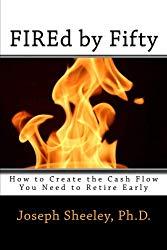
(If you enjoy The Small Investor and want to support the cause, or you just want to learn how to become financially independent, please consider picking up a copy of my new book, FIREd by Fifty: How to Create the Cash Flow You Need to Retire Early This is the instruction manual on how to become financially independent.)
But beyond the messenger, is the message really true? Is the value of a life incalculable? Would you give anything to save your life? Should a society devote infinite resources to saving someone’s life? Let’s take a look at this idea.
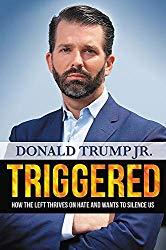
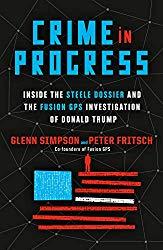
Is a life really infinitely valuable?
Let’s say that you had ingested a poison that would kill you in five minutes. Standing in front of you is the evil scientist who poisoned you, holding the antidote. He says he will sell it to you, but it will cost you $1M. Would you buy it?

Want all the details on using Investing to grow financially Independent? Try The SmallIvy Book of Investing.
Maybe your gut response would be. “Sure, I’ll buy it. It’s only money, and this is my life we’re talking about.” But if you think a little deeper, perhaps the answer isn’t as cut and dry, depending on the circumstances. Such as:
- Your finances
First of all, there would be the consideration of your finances. If you were a multi-millionaire, it would be a no-brainer. What are you going to do with $10M if you’re dead? Might as well spend $1M and live to enjoy the rest. Wait a year or two and the $1M will replenish itself from your investments anyway.
But what if you are 65 and only have $1M? Without that money, you’re going to have a tough time making it through retirement. Sure, you’ll be alive, but will you really be living? You might spend the next 20 years that you bought with your life savings in a low-rent apartment or a subsidized senior living facility watching TV because you don’t have the funds to do anything. Plus, you spent your whole life acquiring that $1M, and now it would all be gone.
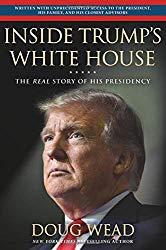
And that is really the issue: Time is money. Money is time. If you made an average of $25 per hour after taxes during your working career, it took you 40,000 hours to earn and save up that $1M. That’s 1,000 weeks, or 19 years of your life. You could have stopped working at age 46 and done whatever you wanted instead of working all of those hours. That money is time that you will never get back. If you now give it away, sure you’ll get maybe 20 more years, but they probably won’t be of the same quality as the 19 years that you lost. Your physical ability will certainly not be as good. The choice becomes more difficult.
Time is Money. Money is Time.
And what if you don’t have any money and would need to borrow the money? You’d need to work about twice as long to pay the loan back since you’d be paying interest. This means that you’d spend about the next 40 years working without getting anything from it. You’d be paying to get to go to work and come home with little left to show for your efforts. Let’s say that your family would keep the debt even after you died, so you’d also be burdening your children with your loan. Would that be worth it?
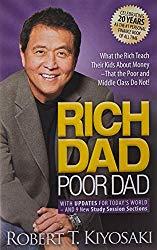
2. Your age
A second consideration would be your age. Your answer would probably be different if you were 25 or 15 than if you were 85 or 90. If you had your whole life ahead of you and you had the $1M in your pocket, even if it was everything you had, you’d figure that you could make another $1M but it wouldn’t do you much good if you were dead. If you were 85 or 90, however, such that you most likely would have only a few years ahead of you, and you had all sorts of aches and pains that make it difficult to do anything, you’d probably figure you’d rather leave the money to your kids or a favorite organization than spend it for a year or two more of life.
Because beyond what you do in life that is remembered and the family you leave behind, your wealth that you leave is part of your legacy. You want to be able to help your children or your grandchildren and make their life a little bit better than yours. Or maybe you want to donate to an organization and help them out, or even create a center or a foundation in your name that lives on indefinitely. Who wouldn’t want a library or a cultural center named after her?
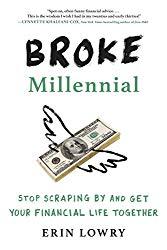
If you were forced to spend everything, it is kind of like your whole life and all of the efforts you made would be wiped away. I think you’ll feel differently within a few minutes after you were dead and see what is waiting on the other side, but while you’re in this world, legacy is important to many people. Most people would choose a legacy over another year of life, especially if the quality of life were poor.
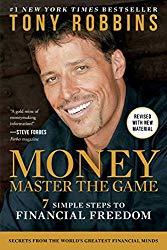
So, what is the value of a life?
So, the value of one’s own life clearly depends on age, at least when it’s your money. At age 20, it is easily worth at least $1M because of all the experiences you have ahead of you. At age 85, it might be worth $50,000, but certainly not $1M. One way to value a life is to look at the money it would generate beyond that needed to simply sustain itself, plus add a little extra for “goodwill.” This means that the life of someone younger than 25 might be worth a few million dollars. The value would then drop off with age, perhaps dropping to a million dollars at age 45 and maybe a half million at age 65. Beyond there it might drop off quickly as quality of life would start to decline more quickly. A life at 75 might be worth $100,000. At age 85, $10,000. Beyond age 90, it might not have a value.
Of course, the value would vary by the individual. Some people might be desperate to cling onto life and be willing to spend any money they have to preserve it. Others might see their life as worthless and welcome death. It is really different depending on the individual.
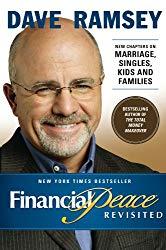
But what if it’s not your money?
Really what Cortez is offering isn’t the ability to get the healthcare you need to survive at cost to you. What she’s offering is to have others pay for your healthcare, because your life, any life, is so valuable to society that “we can’t worry about money.” Would you buy the anecdote even if you only had ten years, or one year, or one month left if you were getting it at no cost to you? Most people would. I’d guess that almost everyone, except for a few people who were tired of life and ready to go, probably would.
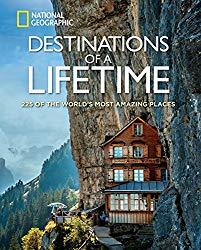
But from where does the money she’s offering come? Socialists like Cortez will act like it all comes from some rich people who made their wealth taking advantage of the working class who really won’t miss the money anyway. But then why do programs such as universal healthcare always come with new taxes that virtually everyone pays? It is because there is not enough money available in the pockets of the ultra-wealthy to pay for such programs, plus the ultra-wealthy would just leave or do other actions to avoid the taxes if they were taxed too much. As Margaret Thatcher famously said, the trouble with Socialism is that, eventually, you run out of other people’s money. While she doesn’t say it, you’d be the one paying for that magic antidote, even if you pay for it a little at a time and it looks like it is free when you receive it.
“The trouble with Socialism is that eventually you run out of other people’s money.’ – Margaret Thatcher
Of course, some people truly don’t pay. And many others don’t pay the full cost because they don’t earn enough money over their whole lifetimes to do so. The ultra-wealthy would pay more than their share, as would the wealthy. Most people in the middle class would pay about what they use, but some would pay for more than they use because they would live a life that ends suddenly with few health problems. But is that really desirable? We’ve already established that money is time. Is it really right to force others to give you some of their lives so that you can live a little longer? Not by their choice, but under force of law.
A forced choice
What if you had a different choice? What if you could live to age 120, but never travel, rarely eat out, always drive beater cars, and only have a modest home in an uninspiring location? You would just go to work and come home for 100 years, then pass away. What if the other choice was to travel, eat out with friends frequently, have a new car every four years and have a nicer home or a condo in a great location, but only live to age 70? While there might be a few people who would take the first option, most would choose the second. Most people would rather live a pleasant life for 70 years than a mundane one for 120 years. That extra 50 years would just be more drudgery.
But a universal healthcare system like Cortez is suggesting is that second choice, assuming that it would actually create the healthcare needed to keep you alive for another 50 years. (In actuality, it might reduce your life since having everything paid-for would create more demand which would outstrip the supply, causing care to be rationed and the quality of care to decline.) What if, in addition to what you’re already paying for healthcare between you and your employer, you needed to pay another $1,000 per month, or $2,000, or $5,000? That extra money is what you’re currently spending on cars, or vacations, or meals out.
A universal healthcare program, if it actually had the resources to actually provide quality care for everyone and not just be something that you pay for but which offers very little when you actually need it, would cost you more money that you’re paying now because you’d be covering a lot of people who would be paying less than what they use, plus the incentive would be to make less so that you would pay less. Why work all of that overtime if it just ends up going to taxes? Why get that better job with more responsibility when you can just do a simple job and get paid enough since your healthcare is covered by others? With socialism, the object of the game is to get more than you pay for.
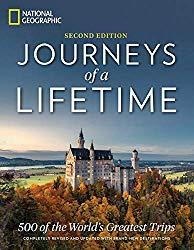
So, what Cortez is proposing isn’t “free healthcare, because life is more precious than money.” She’s proposing that you be forced to prioritize healthcare to the point where all of the spare money that you have after you pay for necessities goes towards paying for it. And not just for your healthcare, but that of anyone in society once his/her mother decides that his/her life is convenient enough to continue. Only the very wealthy would have enough money left over to buy things beyond necessities in this healthcare utopia she proposes. We’d all be living longer, assuming that she were successful in preserving life through healthcare spending, but our lives would be more mundane and devoid of luxuries.
And if you lived a relatively healthy life because of choices like exercise, you’d spend far more on healthcare than you used. You wouldn’t even have the chance of having a lot of extra money available to enjoy life in your later years if you were fortunate enough to not have a lot of medical expenses and/or you chose to live a healthy life and avoid illnesses and medical conditions like diabetes and high blood pressure. You would actually “win” if you spent more on healthcare. Most people today do live relatively healthy lives and get to enjoy the savings. This would be eliminated.
With your money, the choice could be yours
If you keep your money instead of paying it into a universal healthcare system, the choice becomes yours. You can choose to save up so that you have money available when medical expenses occur. Someone who was really concerned about preserving his life could even go to extremes, saving everything and maybe even paying to be frozen at death to hopefully be reanimated in the future.
Someone else might just figure they’d rather live and enjoy their life today and take the risk that some expensive but treatable medical issue would end their life somewhat young. Many people would prefer a full life that ends at 70 to an empty one that ends at 100. They might also win “the lottery” and have a long life without any significant medical event occurring. They could choose to improve their odds of that occurring by exercising regularly and eating well.

Universal healthcare removes the choice. You’re forced to pay a significant amount of your money into healthcare whether you want to or not. You could take good care of yourself to prolong your life and reduce the amount of healthcare you use, but you’ll be paying the same regardless. Unless you’re very wealthy, your quality of life will be reduced in the name of prolonging your life. You could also lose the choice of managing your money to prolong your life to the extreme since you wouldn’t have the ability to invest your money and build up a huge nest egg while you were young and healthy. Everyone would lose.
And, because most people will use the most healthcare late in life, we as a society would end up spending a lot more on healthcare than we would if given the personal choice since we’d be spending more for individuals with less quality life remaining before them. This is unless care were rationed based on remaining quality of life. Such a system would be gamed by the well-connected who would know the strings to pull to get approved for procedures when others without such pull would not. A powerful government, one which held the ability to live, would be subject to corruption.
So what is the value of a life? Like everything else, there is a value. The value of it might depend on the individual asked, but then the value of a phone would also vary depending on the individual. Very few people would say that the value of a life is, “Everything.”
Have a burning investing question you’d like answered? Please send to [email protected] or leave in a comment.
Follow on Twitter to get news about new articles. @SmallIvy_SI
Disclaimer: This blog is not meant to give financial planning or tax advice. It gives general information on investment strategy, picking stocks, and generally managing money to build wealth. It is not a solicitation to buy or sell stocks or any security. Financial planning advice should be sought from a certified financial planner, which the author is not. Tax advice should be sought from a CPA. All investments involve risk and the reader as urged to consider risks carefully and seek the advice of experts if needed before investing.
